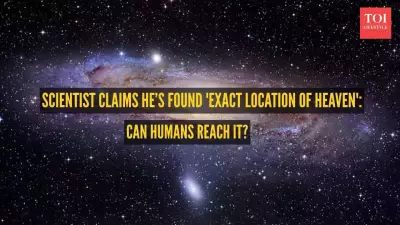
In a candid revelation that's sending ripples through the tech world, Perplexity AI CEO Aravind Srinivas has declared two Google products virtually unbeatable in the current digital landscape. Despite the rapid advancements in artificial intelligence and search technology, Srinivas identifies YouTube and Google Maps as the twin titans that even the most sophisticated AI startups struggle to compete against.
The Unshakeable Dominance of Video Content
Srinivas, whose AI-powered search engine has been making significant waves in the industry, points to YouTube's immense content repository as its primary defense mechanism. "YouTube has become the internet's default video library," he explains. "The sheer volume of user-generated content, combined with years of accumulated data and user behavior patterns, creates a moat that's incredibly difficult to cross."
What makes YouTube particularly formidable is its dual nature as both a search platform and content destination. Unlike traditional search engines where users quickly find information and leave, YouTube keeps users engaged for extended periods, creating a powerful feedback loop that continuously improves its recommendations and search capabilities.
Google Maps: The Physical World's Digital Twin
When it comes to Google Maps, Srinivas highlights the astronomical costs and logistical challenges involved in replicating its functionality. "Creating a competing mapping service isn't just about software development," he emphasizes. "It requires physically mapping the entire world, maintaining real-time updates, and processing countless data points about businesses, traffic, and user movements."
The Perplexity CEO breaks down why Maps represents such a formidable challenge:
- Massive infrastructure investment required for global coverage
- Continuous updating needed for accurate real-time information
- Network effects that make the service more valuable as more people use it
- Integration with countless other services and applications
AI's Limitations Against Established Giants
Interestingly, Srinivas notes that even artificial intelligence, the great disruptor of our time, faces significant hurdles against these established platforms. "AI can improve how we interact with these services, but it doesn't replace the fundamental infrastructure and data advantages they've built over decades," he observes.
The Perplexity founder's comments come at a time when AI companies are challenging Google's core search business. However, his analysis suggests that while traditional web search might be disruptable, YouTube and Maps operate in categories where the barriers to entry are substantially higher.
The Silver Lining for AI Startups
Despite identifying these nearly impenetrable fortresses, Srinivas remains optimistic about AI's potential in other domains. "Where AI truly shines is in creating new categories and reimagining how we access and process information," he says. "Rather than trying to beat Google at its own game, we're focused on pioneering entirely new ways for people to find and understand information."
This perspective offers valuable insights for investors, entrepreneurs, and tech enthusiasts watching the ongoing AI revolution. While some battles might be too costly to fight, the war for the future of technology remains wide open, with AI poised to create the next generation of indispensable digital services.





